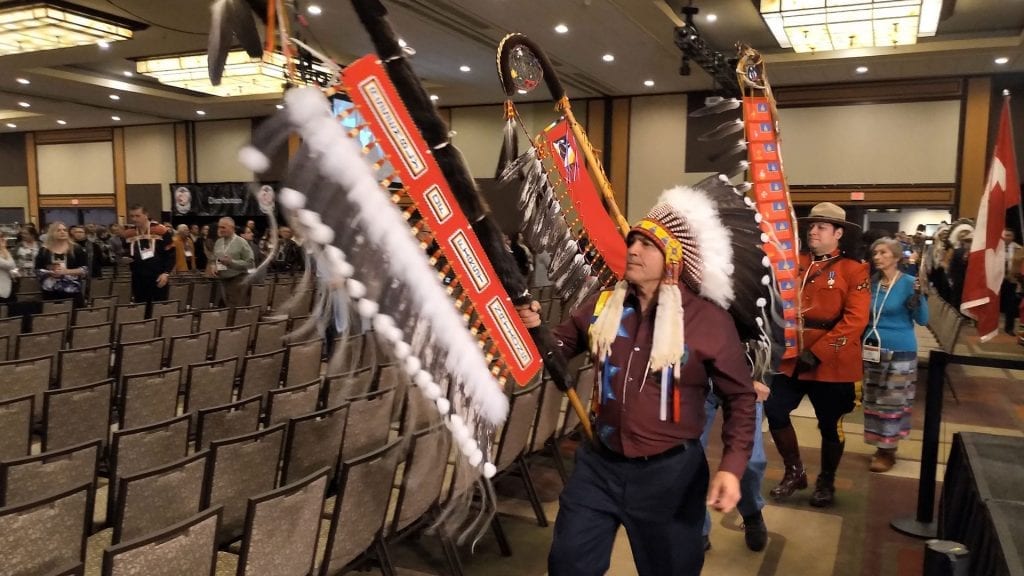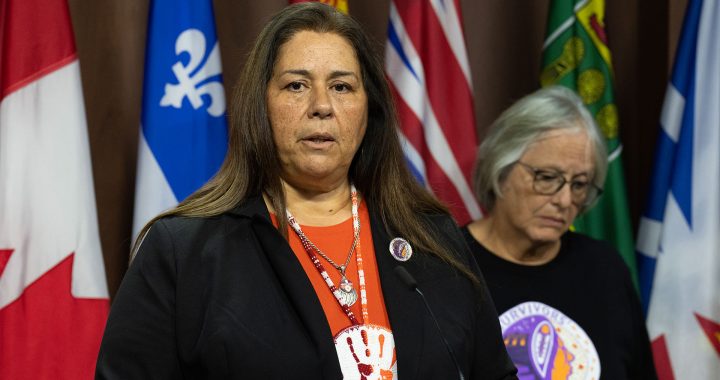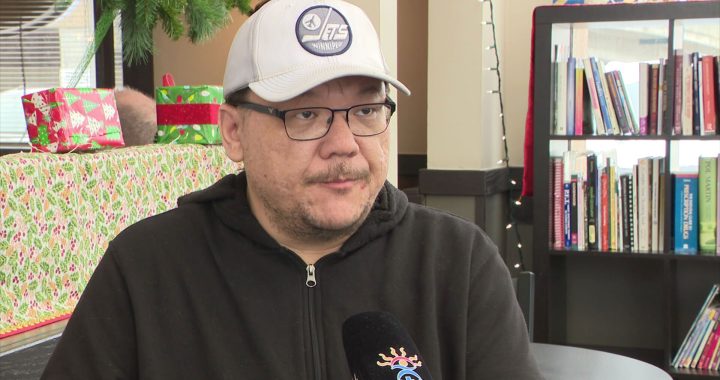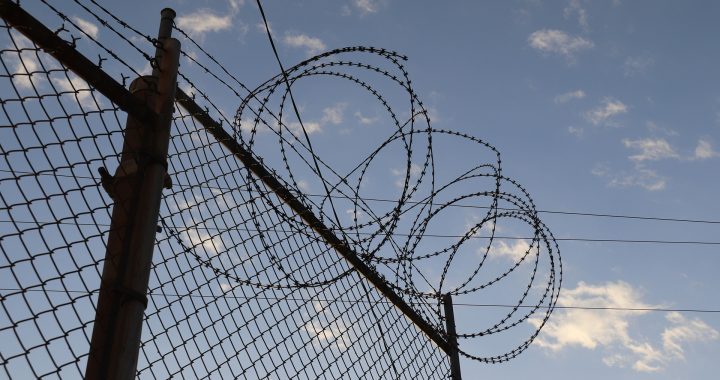
A scene from the opening ceremony during the 2017 special assembly. This year’s general assembly and election is being held virtually due to the pandemic. Photo: APTN
Reginald Bellerose took the lead late Wednesday in a tight Assembly of First Nations election race, but Alvin Fiddler dropped out minutes before the third round of voting concluded — potentially paving the way for an 11th-hour push from RoseAnne Archibald.
“After much reflection and in consultation with family and Elders, I have decided to support RoseAnne Archibald as the next national Chief in recognition of how important it is that a woman lead in the current circumstances,” said Fiddler on Twitter. “I encourage those who voted for me to support her.”
Fiddler is a Muskrat Dam First Nation member who served as Nishnawbe Aski Nation grand chief since 2015.
Bellerose, long-time chief of Muskowekwan First Nation, netted 144, or 40 per cent, of the 357 ballots cast during round three.
Archibald, former Ontario regional chief, got 129 votes, or 36 per cent. They were nearly tied after rounds one and two, and are now the only remaining candidates in a close contest.
The winner must secure 60 per cent of the ballots cast, which would’ve been 215 this round. The convention normally involves block voting and deal making to win.
Fiddler got 64 votes, while Jodi Calahoo Stonehouse, executive director of the Yellowhead Indigenous Education Foundation and former band councillor from Alberta, secured 20 votes.
“I look forward to seeing a matriarch lead the Assembly of First Nations,” Calahoo Stonehouse said in her speech, indicating her support for Archibald.
The AFN has never had a woman as national chief. It hasn’t had a national chief from Ontario since Delbert Riley headed its forebear, the National Indian Brotherhood, in 1982.
During the previous round, Kevin Hart received the fewest votes and was eliminated.
Hart thanked the chiefs for their support and commended outgoing National Chief Perry Bellegarde in a brief speech.
Hart threw his support behind Bellerose. The exodus of Manitoba’s former regional chief may have freed up votes in that province resulting in Bellerose’s late push.
The presence of two candidates from Ontario may have been preventing either contender from marshalling full support in their own region, which could result in a fourth-round boost for Archibald.
Ontario can field a total of 133 votes while all three Prairie provinces contain 180 chiefs between them.
British Columbia has the most chiefs with 204 and no contestant in the race. One chief said B.C. had only around 50 registered as of Tuesday afternoon.
During a debate over a resolution to delay the election on Tuesday, chiefs from B.C., Yukon and other regions expressed concerns that poor connectivity, the pandemic, wildfires and low turnout would set the new national chief off with a weak mandate.
But they were opposed firmly by chiefs from Ontario, Alberta and other regions. The delegates voted 60 per cent in favour of proceeding with the election.
There were 357 chiefs and proxies registered Tuesday, and this number climbed to 406 of the 634 total First Nations in Canada by the time registration closed.
Cathy Martin of Listuguj in Quebec and Lee Crowchild from Alberta were eliminated after round one.
The AFN election is being hosted on Six Nations of Grand River and Mississaugas of the Credit First Nation territory, but voting is taking place virtually because of the pandemic.
Bellegarde has helmed the national lobby organization since 2014 but announced in December that he wouldn’t seek a third term.
The fourth ballot results will be announced Thursday afternoon.










